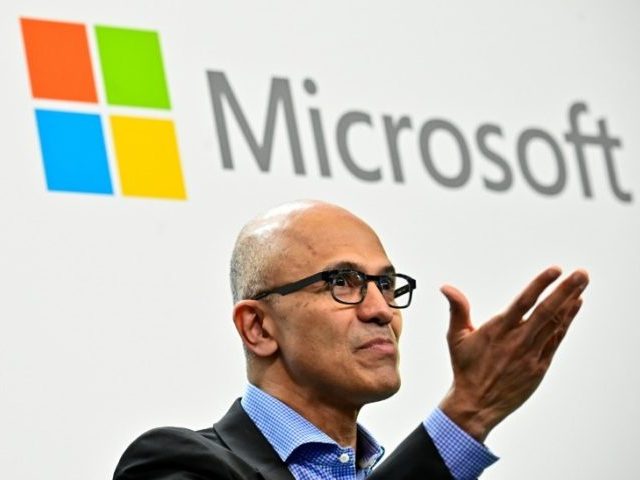Microsoft recently testified at a hearing of the House Committee on Homeland Security. The subject? How tech companies can prevent “election interference” in 2020. But a member of its board, billionaire Reid Hoffman, admitted to funding an election interference campaign in 2017.
This is an especially important topic for Microsoft, because the tech giant wants to create the hardware and software that Americans use to cast their votes — in other words, they want to be the trusted digital middleman for American elections. They’re already planning a limited trial of the system, dubbed “ElectionGuard,” in 2020.
Democrats at the hearing focused on one of their well-rehearsed boogeymen, the specter of “Russian interference.”
“The Kremlin leveraged sophisticated cyber capabilities to target our election infrastructure and amplify divisive – and at times false – rhetoric in an unprecedented way to sow discord, undermine the public’s faith in democratic institutions, and ultimately damage the global leadership of the United States,” said Rep. Cedric Richmond (D-LA)
Among the Kremlin operations cited by Rep. Richmond was the mobilization of “bots and fake online personas to carry out influence operations.”
Yet Rep. Richmond didn’t ask Microsoft’s representative about the fact that one of the tech company’s own board members, billionaire LinkedIn co-founder Reid Hoffman, admitted to funding the very same kind of Russian-style digital disinformation campaigns during the Alabama senate runoff in 2017.
Hoffman currently sits on the board of Microsoft. In 2017, he gave three-quarters of a million dollars to American Engagement Technologies (AET), a group that deliberately spread misinformation about Roy Moore, the opponent of Democrat senate candidate Doug Jones, including the false allegation that Moore was being assisted by a network of Russian bots. Jones narrowly won the election.
Hoffman later apologized for his funding of AET — after the damage had been done. But why wasn’t Microsoft asked about it, given that the company wants to control digital voting in America, and given that the whole subject of the hearing was election interference and disinformation?
Microsoft, in its statement to the committee, said the company is committed to “defend against disinformation campaigns in partnership with leading academic institutions and think tanks dedicated to countering state-sponsored digital propaganda and falsehoods.”
It made no mention of the fact that its own board member has dabbled in “digital propaganda” himself.
Are you an insider at Google, Facebook, Twitter or any other tech company who wants to confidentially reveal wrongdoing or political bias at your company? Reach out to Allum Bokhari at his secure email address allumbokhari@protonmail.com.
Allum Bokhari is the senior technology correspondent at Breitbart News.

COMMENTS
Please let us know if you're having issues with commenting.